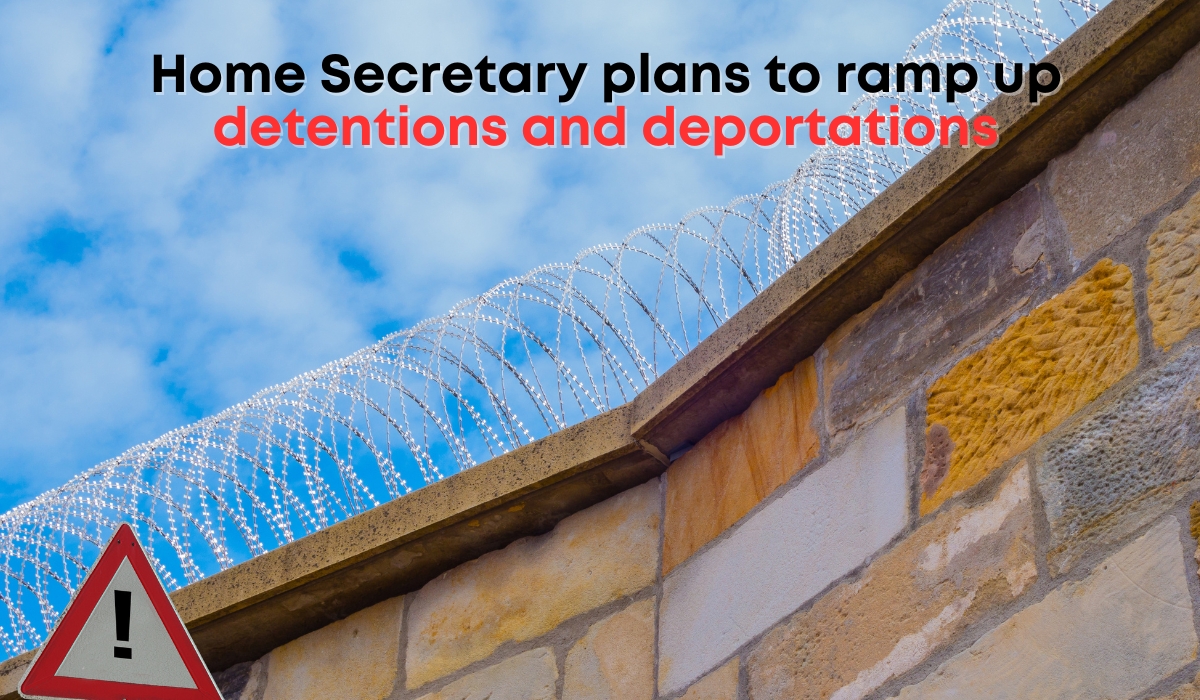As reported by The Telegraph, Home Secretary Yvette Cooper has announced a series of robust measures aimed at increasing the detention and deportation of illegal migrants.
Expanding Detention Capacity to Support Higher Deportation Rates
The cornerstone of this strategy is the expansion of the UK’s immigration detention capacity. The Home Office has confirmed that nearly 300 additional spaces will be created across two key immigration removal centres, Campsfield in Oxfordshire and Haslar in Hampshire. These expansions are part of a broader plan to facilitate the deportation of over 14,500 illegal migrants within the next six months—a target that surpasses deportation rates seen since 2018.
This move is particularly noteworthy given the historical opposition to immigration detention in the UK. Despite local resistance and criticisms from various political factions, including prominent Labour MPs, both centres were reopened under the previous Conservative government. The expansion of these centres under a Labour government signals a significant shift in the party’s approach to immigration enforcement, prioritising border security and the enforcement of immigration laws over the concerns of left-wing critics.
Bolstering Enforcement with New Resources
In tandem with the expansion of detention facilities, the Home Office has redeployed 300 caseworkers to focus specifically on tracking, detaining, and deporting illegal migrants. Additionally, up to 100 specialist intelligence and investigations officers are being recruited by the National Crime Agency (NCA). These officers will collaborate closely with European agencies to dismantle the people-smuggling networks that facilitate dangerous crossings into the UK.
The Labour government’s strategy appears to be a direct response to criticisms that the abolition of the Rwanda deportation scheme had left the UK without a deterrent against illegal migration. By ramping up enforcement and focusing on returns, Labour is attempting to create a more controlled and managed immigration system, in contrast to what many perceive as the previous administration’s chaotic approach.
Addressing Channel Crossings and the Role of International Cooperation
One of the most pressing issues in UK immigration policy has been the steady flow of migrants crossing the Channel in small boats. Since Labour’s election, there has been a reported 14% decrease in such crossings compared to the same period last year, with figures showing a 47% reduction compared to 2022. While these numbers suggest some success, they also highlight the ongoing challenge of securing the UK’s borders.
Labour attributes this decline to more aggressive tactics by French police on beaches, improved cooperation with European law enforcement, and the disruption of smuggling operations. However, the government acknowledges that these measures alone are not enough and is therefore pushing for a significant increase in the resources allocated to border security.
Challenges and Criticisms
Despite the ambitious nature of these plans, Labour’s strategy is not without its critics. Some argue that increasing detention and deportation rates does not address the root causes of illegal migration, such as poverty, conflict, and persecution in migrants’ home countries. Others express concern about the human rights implications of expanding detention facilities, particularly in light of past criticisms of the UK’s immigration detention system.
The next six months will be crucial in determining the success of Labour’s new immigration policies. The expansion of detention facilities, increased deportations, and enhanced border security measures represent a significant shift in the UK’s approach to managing illegal immigration. However, the effectiveness of these measures will depend on their implementation and the government’s ability to balance enforcement with the protection of human rights.
Get in touch: For a comprehensive understanding of your options or queries on UK immigration matters, contact GigaLegal Solicitors at 02074067654 or click here to book a no-obligation consultation with an immigration expert.


